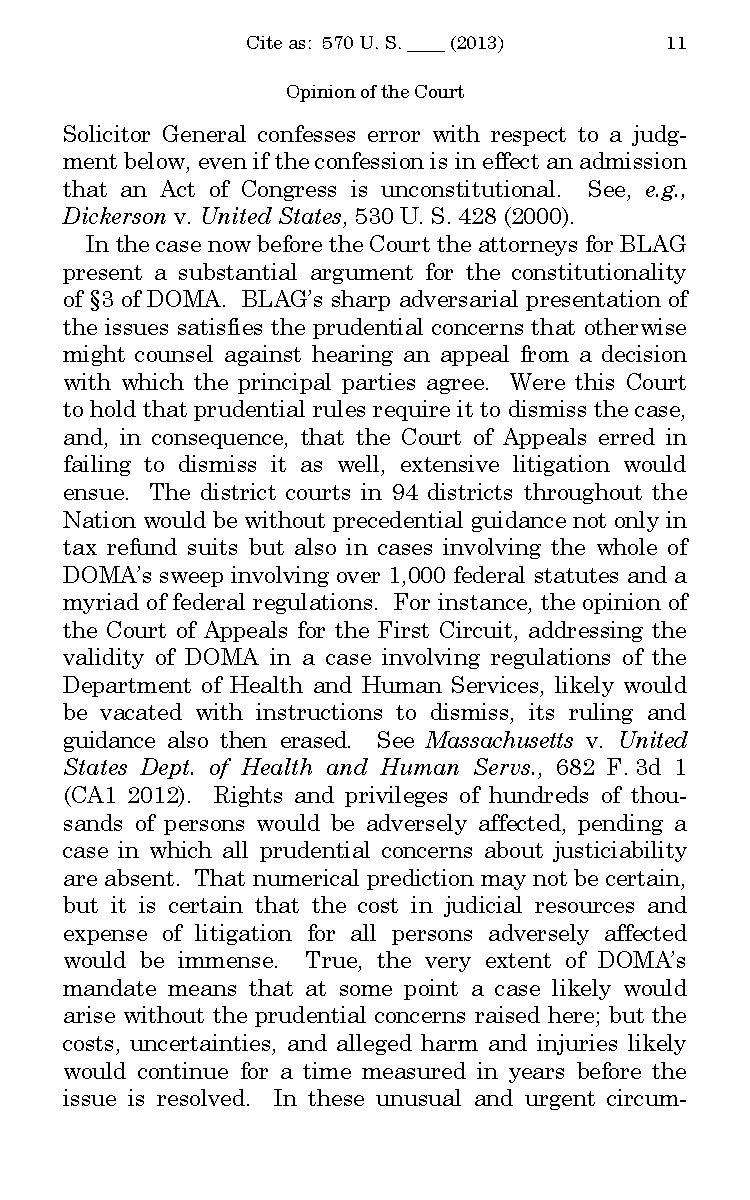Solicitor General confesses error with respect to a judgment below, even if the confession is in effect an admission that an Act of Congress is unconstitutional. See, e.g., Dickerson v. United States, 530 U.S. 428 (2000).
In the case now before the Court the attorneys for BLAG present a substantial argument for the constitutionality of §3 of DOMA. BLAG's sharp adversarial presentation of the issues satisfies the prudential concerns that otherwise might counsel against hearing an appeal from a decision with which the principal parties agree. Were this Court to hold that prudential rules require it to dismiss the case, and, in consequence, that the Court of Appeals erred in failing to dismiss it as well, extensive litigation would ensue. The district courts in 94 districts throughout the Nation would be without precedential guidance not only in tax refund suits but also in cases involving the whole of DOMA's sweep involving over 1,000 federal statutes and a myriad of federal regulations. For instance, the opinion of the Court of Appeals for the First Circuit, addressing the validity of DOMA in a case involving regulations of the Department of Health and Human Services, likely would be vacated with instructions to dismiss, its ruling and guidance also then erased. See Massachusetts v. United States Dept. of Health and Human Servs., 682 F.3d 1 (CA1 2012). Rights and privileges of hundreds of thousands of persons would be adversely affected, pending a case in which all prudential concerns about justiciability are absent. That numerical prediction may not be certain, but it is certain that the cost in judicial resources and expense of litigation for all persons adversely affected would be immense. True, the very extent of DOMA's mandate means that at some point a case likely would arise without the prudential concerns raised here; but the costs, uncertainties, and alleged harm and injuries likely would continue for a time measured in years before the issue is resolved. In these unusual and urgent circum-
